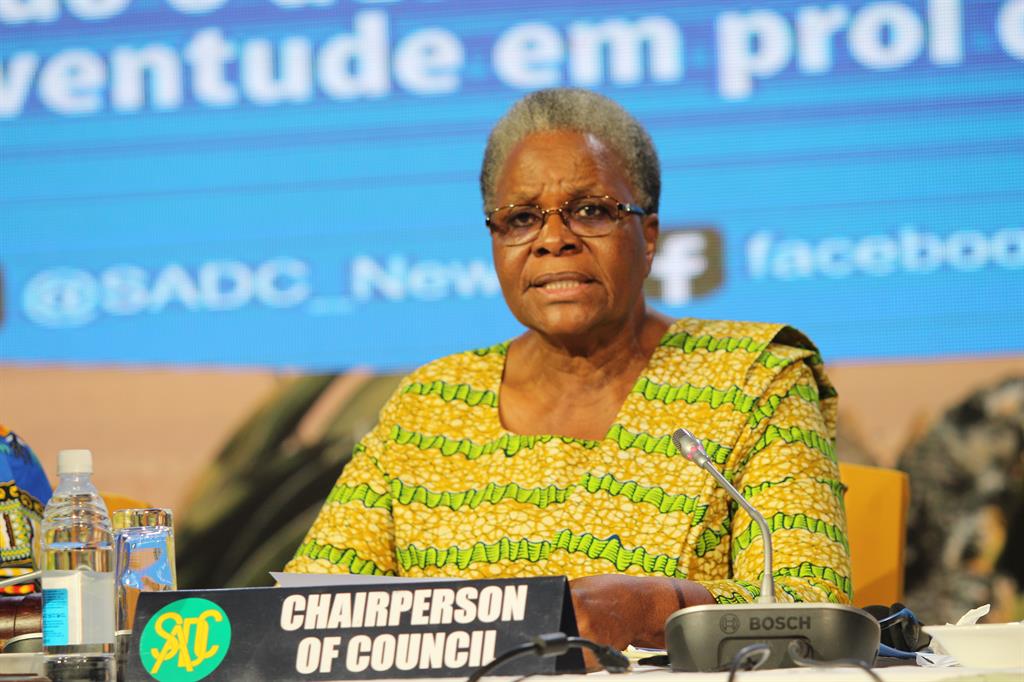The word ‘sexuality’ is the problem
In November, Nandi-Ndaitwah wrote a recommendation to the education ministry that CSE be kept in schools, but under a different name – ‘skills-based health education’.
TUYEIMO HAIDULA
OSHAKATI
THE education ministry's deputy director for HIV-AIDS management, Julius Nghifikwa, said those lobbying for comprehensive sexuality education (CSE) to be removed from Namibian schools are opposed to the wording - not the teaching content.
Deputy prime minister and international relations minister Netumbo Nandi-Ndaitwah is among those who are unhappy with the subject’s name.
Last month, she made a U-turn on her decision to discontinue CSE in schools come next year.
Initially, Nandi-Ndaitwah wrote a letter to education minister Anna Nghipondoka advising her not to renew the country’s East and Southern Africa (ESA) ministerial commitment on CSE.
In November, the minister then wrote another recommendation to the education ministry that CSE be kept in schools, but under a different name – ‘skills-based health education’.
‘Sexuality is disturbing’
Nghifikwa told Namibian Sun this week that “people don’t want to use the word sexuality”.
“The word sexuality is disturbing them. To keep them at peace, we are calling it skills-based health education, but the content remains the same.”
He further explained that the skills-based health education programme is integrated into life skills syllabi from grades 4 to 12.
“I would like to state that CSE has been perceived by the public as a standalone subject or programme in schools, which is not the case. It targets adolescents and young people aged 10 to 24, equipping them with the necessary knowledge, skills and attitudes needed in life, enabling them to make informed decisions and right choices on their sexual lives.
“It is a life skills programme making young people behave responsibly and account for the consequences of their actions,” Nghifikwa said.
Debunking myths
He added that the programme intends to promote ethics, disease-free life, skills on how to handle and manage substance use and abuse, preventing unintended pregnancies and ensuring girls stay in school.
Education ministry executive director Sanet Steenkamp explained that her ministry made a detailed presentation to Cabinet on the importance of CSE and that subjects such as Biology and Life Skills - which are taught at school already - include health and sexuality education, which is what CSE advocates for.
Steenkamp said the ministry is hard at work to debunk the myths surrounding CSE and the belief that the ministry is advocating for children to engage in early sexual activities – which, she said, is not the case.
In a letter dated 11 November, she said Cabinet will adopt the proposal to rename the subject.
Meanwhile, questions to Bertha Amakali, the international relations ministry spokesperson, went unanswered on why the minister made a U-turn on her decision and what the issue surrounding the word ‘sexuality’ is.
[email protected]
OSHAKATI
THE education ministry's deputy director for HIV-AIDS management, Julius Nghifikwa, said those lobbying for comprehensive sexuality education (CSE) to be removed from Namibian schools are opposed to the wording - not the teaching content.
Deputy prime minister and international relations minister Netumbo Nandi-Ndaitwah is among those who are unhappy with the subject’s name.
Last month, she made a U-turn on her decision to discontinue CSE in schools come next year.
Initially, Nandi-Ndaitwah wrote a letter to education minister Anna Nghipondoka advising her not to renew the country’s East and Southern Africa (ESA) ministerial commitment on CSE.
In November, the minister then wrote another recommendation to the education ministry that CSE be kept in schools, but under a different name – ‘skills-based health education’.
‘Sexuality is disturbing’
Nghifikwa told Namibian Sun this week that “people don’t want to use the word sexuality”.
“The word sexuality is disturbing them. To keep them at peace, we are calling it skills-based health education, but the content remains the same.”
He further explained that the skills-based health education programme is integrated into life skills syllabi from grades 4 to 12.
“I would like to state that CSE has been perceived by the public as a standalone subject or programme in schools, which is not the case. It targets adolescents and young people aged 10 to 24, equipping them with the necessary knowledge, skills and attitudes needed in life, enabling them to make informed decisions and right choices on their sexual lives.
“It is a life skills programme making young people behave responsibly and account for the consequences of their actions,” Nghifikwa said.
Debunking myths
He added that the programme intends to promote ethics, disease-free life, skills on how to handle and manage substance use and abuse, preventing unintended pregnancies and ensuring girls stay in school.
Education ministry executive director Sanet Steenkamp explained that her ministry made a detailed presentation to Cabinet on the importance of CSE and that subjects such as Biology and Life Skills - which are taught at school already - include health and sexuality education, which is what CSE advocates for.
Steenkamp said the ministry is hard at work to debunk the myths surrounding CSE and the belief that the ministry is advocating for children to engage in early sexual activities – which, she said, is not the case.
In a letter dated 11 November, she said Cabinet will adopt the proposal to rename the subject.
Meanwhile, questions to Bertha Amakali, the international relations ministry spokesperson, went unanswered on why the minister made a U-turn on her decision and what the issue surrounding the word ‘sexuality’ is.
[email protected]




Comments
Namibian Sun
No comments have been left on this article